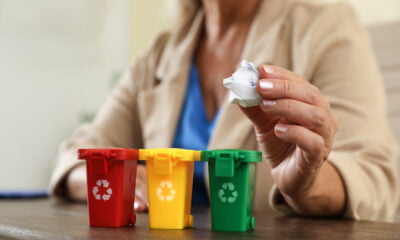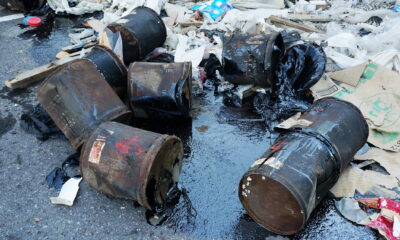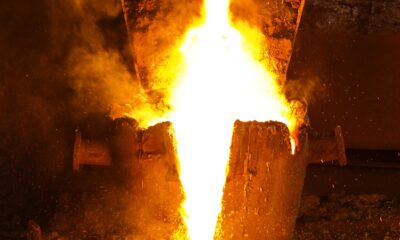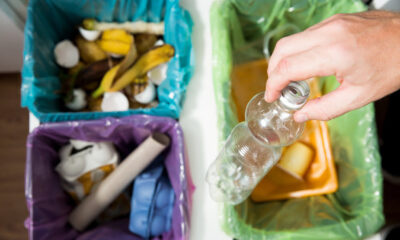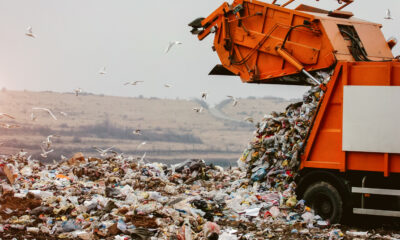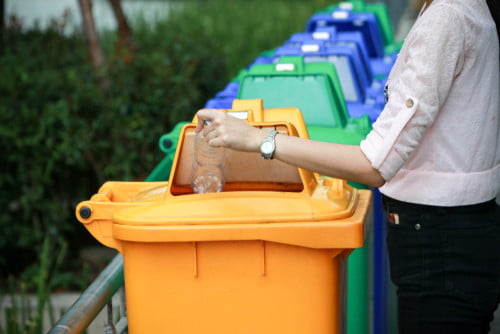

Environment
Is It Time To Rethink Our Archaic Approach To Waste Management?
When we think about the waste management industry, we tend to think about the cost-structure of the business and how waste is disposed of. We rarely evaluate the industry and our approach to waste management from the perspective of how waste is created. As a result, we place the burden on managing our growing amount of consumer waste on the waste management facilities, rather than the groups producing the waste. That’s the wrong way to look at the problem of waste and its environmental impact.
The Decisions We Make Affect Our Environment
Rodney R. Proto, the Director of Waste Strategy for Armada Waste, believes that environmental decisions are often driven by emotion rather than reason or accountability.
A lot of our decisions on recycling and the environment aren’t logical or they conflict with each other.
For instance, our efforts to recycle glass (which is primarily made from sand) tend to get in the way of other recycling efforts which would be more beneficial for the environment overall.
Proto was kind enough to share some wonderful insights with us on the importance of reevaluating our waste management protocols.
How Can We Reduce the Amount of Waste Created?
While there’s a strong focus on reducing the number of plastic bags that we use in a given week, the reality is that our choices are responsible for most of our waste problems. Namely, when checking out at the supermarket and being offered the choice of “paper or plastic,” shoppers need to know why paper is better than plastic.
Why? Because paper is created from pulp, which is the smaller, younger parts of the tree. When parts of a felled tree aren’t old enough or large enough to create timber logs, it can still be developed into pulp that’s used to produce paper. Even when used, paper can be converted back into pulp and then recycled into new paper again.
Paper, or more correctly, standing timber, is renewable. Trees in a productive forest are a renewable resource where the tree can be cut down and a new one planted in its place. The resource isn’t lost. Instead, it’s replaced to give back again in a few years. Forests also serve as a place for wildlife away from urban areas and they help to clean the air too.
In contrast, plastic isn’t renewable. It cannot be reproduced in the same way paper can. It also tends to be found washed up on beaches around the world. It’s also a blight that threatens sea life.
A Change of Thinking is Required
As concerned members of society, we need to change our thinking to know the right thing to do. There’s a complete production, delivery, usage and disposal of waste cycle that’s constantly in motion.
As a society, when we’re always chasing after the better and the new – disposing of a TV (when it still works perfectly) because it’s not large enough or it doesn’t have a flat screen. This results in unnecessary waste being generated.
When we each take personal responsibility to avoid excess consumerism, there’s less waste. Then disposing of it becomes a smaller problem. A better understanding of what can be recycled and the source of the materials, i.e. paper from trees vs. plastic from factories, is helpful here too.
We can each do more to protect the environment. Reducing waste is a net positive. Recycling more is a good thing for the environment, but making different choices to pick materials that are reusable or recyclable or from renewable sources is better still. And not replacing material goods for the latest, greatest thing that was released yesterday reduces the frequency of the ‘production to waste’ cycle in the first place.
It is Time to Tackle the Challenges of Waste Management – And it Begins With US!
We all share the burden of the problems facing the waste management industry. It is time to start reassessing the way that we create and dispose of waste. Fortunately, there are lot of ways that we can go about this process.

